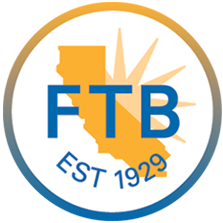Form 943 Due Dates
Excise Tax Forms
Information Returns
Exempt Org. Forms
Extension Forms
FinCEN BOIR
General
Table of Contents
What is Form 943?
Form 943, Employer's Annual Federal Tax Return for Farm Employees, is used to report how federal income tax, Social Security, or Medicare tax withheld from employees’ wages. This form must be filed by employer who hire and pay agricultural workers.
When to File Form 943?
For the tax year 2024, Form 943 is due by January 31, 2025. If you have deposited all your taxes on time and in full, you may file by February 10, 2025. Failure to file by the due date may result in a penalty of 5% of the unpaid tax for each month or part of a month the return is late, up to a maximum of 25%.
Where to File Form 943?
Electronic Filing:
- The IRS recommends filing Form 943 electronically. TaxZerone is an affordable and straightforward e-filing service provider that allows you to file within a few minutes.
Paper Filing:
- If filing by paper, the mailing address depends on whether you include a payment with your return. Refer to the table below for the correct address based on your location.
Mailing Address:
| Location | Without a Payment . . . | With a Payment . . . |
|---|---|---|
| Connecticut, Delaware, District of Columbia, Georgia, Illinois, Indiana, Kentucky, Maine, Maryland, Massachusetts, Michigan, New Hampshire, New Jersey, New York, North Carolina, Ohio, Pennsylvania, Rhode Island, South Carolina, Tennessee, Vermont, Virginia, West Virginia, Wisconsin | Department of the Treasury Internal Revenue Service Kansas City, MO 64999-0008 | Internal Revenue Service P.O. Box 806533 Cincinnati, OH 45280-6533 |
| Alabama, Alaska, Arizona, Arkansas, California, Colorado, Florida, Hawaii, Idaho, Iowa, Kansas, Louisiana, Minnesota, Mississippi, Missouri, Montana, Nebraska, Nevada, New Mexico, North Dakota, Oklahoma, Oregon, South Dakota, Texas, Utah, Washington, Wyoming | Department of the Treasury Internal Revenue Service Ogden, UT 84201-0008 | Internal Revenue Service P.O. Box 932200 Louisville, KY 40293-2200 |
| No legal residence or principal place of business in any state | Internal Revenue Service P.O. Box 409101 Ogden, UT 84409 | Internal Revenue Service P.O. Box 932200 Louisville, KY 40293-2200 |
| Special filing address for exempt organizations; federal, state, and local governmental entities; and Indian tribal governmental entities, regardless of location | Department of the Treasury Internal Revenue Service Ogden, UT 84201-0008 | Internal Revenue Service P.O. Box 932200 Louisville, KY 40293-2200 |
Using Private Delivery Services (PDS):
Certain private delivery services (PDS) are authorized by the IRS to deliver tax returns and payments. These services cannot deliver to P.O. boxes, so use the U.S. Postal Service for P.O. box addresses. Approved PDSs include DHL Express, Federal Express (FedEx), and United Parcel Service (UPS).
For the most up-to-date information and a list of approved PDSs and their addresses, visit:
Depositing Your Taxes
Electronic Funds Transfer (EFT):
- All depository taxes must be deposited electronically via EFT.
When to Deposit Taxes:
- If Total Taxes (Line 13) Are Less Than $2,500:
- Pay the tax due with your timely filed return
- No need to make deposits throughout the year.
- If Total Taxes (Line 13) Are $2,500 or More:
- Deposits must be made by EFT according to your deposit schedule (monthly or semiweekly).
- Determine your deposit schedule at the beginning of each year (see Pub. 51).
Reducing Deposits for Sick and Family Leave Credits:
- You can reduce your deposits by the amount of anticipated credits for qualified sick and family leave wages.
- There is no penalty for reducing deposits if conditions are met (see instructions for lines 12b and 12d).
Important Rules:
- $100,000 Next-Day Deposit Rule:
- If you accumulate $100,000 in tax liability on any day, you become a semiweekly depositor the next day and remain so for at least the rest of the calendar year and the following year.
- The $100,000 threshold is before considering any reduction for nonrefundable credits.
For detailed rules and examples, refer to section 7 of Pub. 51 and IRS notices available at IRS site.
Penalties and Interest?
- There is no extension for filing Form 943, so file it on time to avoid a penalty.
- The IRS charges two penalties: failure to file and failure to pay the appropriate amount.
- Penalties range from 2% to 15%, depending on how late the deposits are made.
If an employer can prove reasonable cause for failing to file or make timely deposits, they can request a penalty abatement from the IRS.




